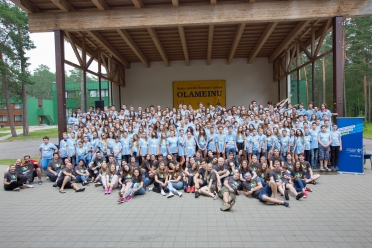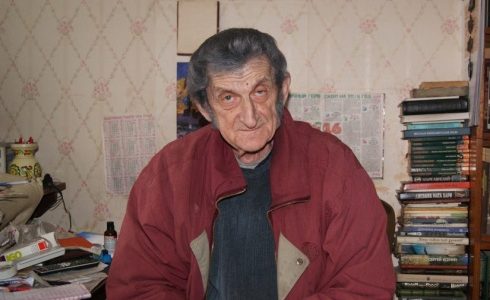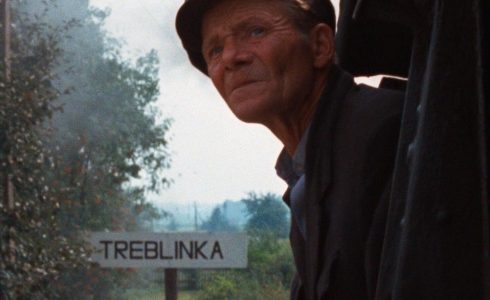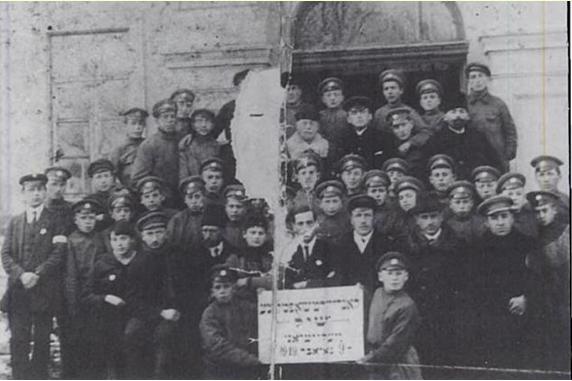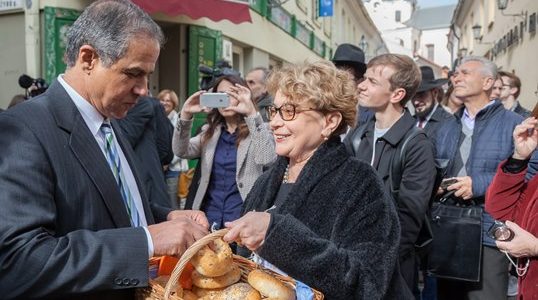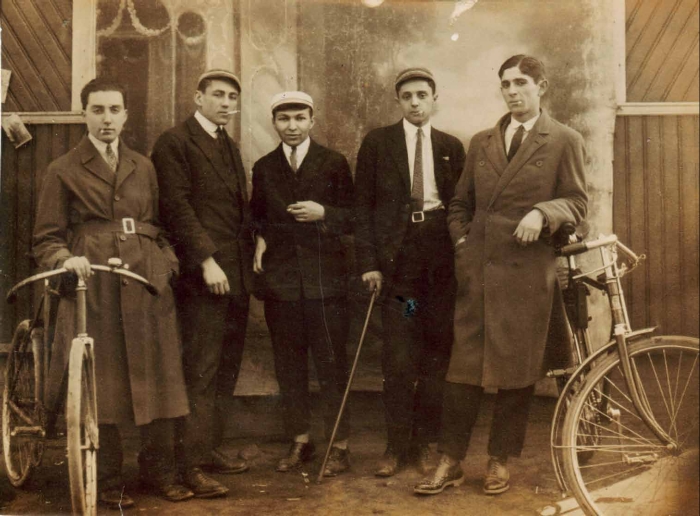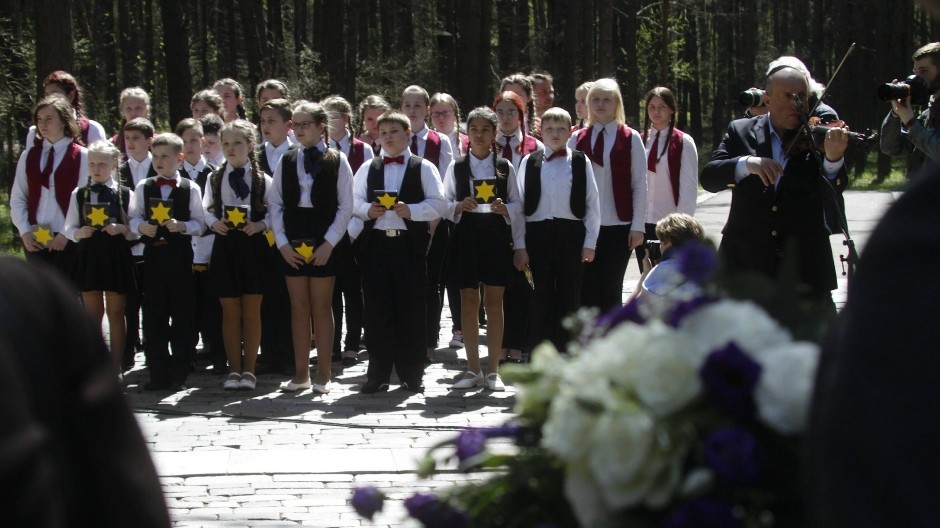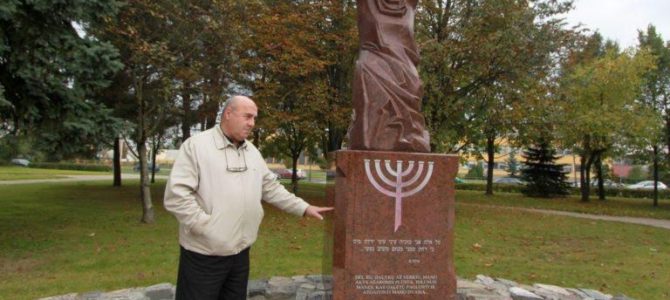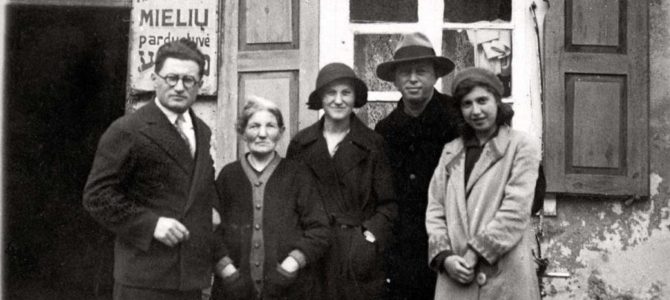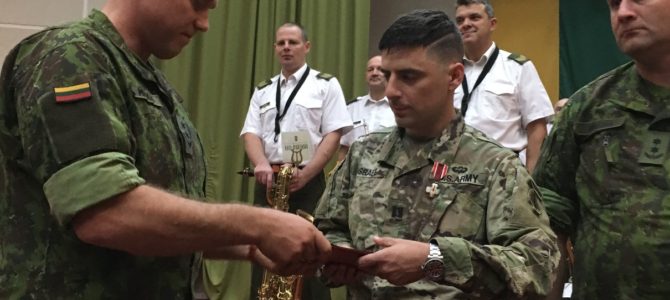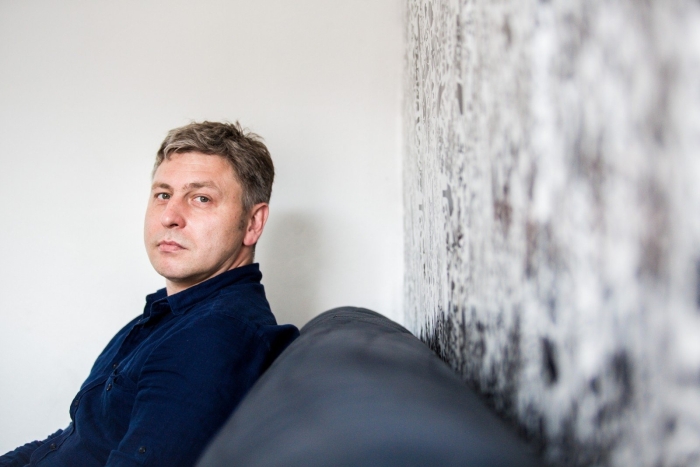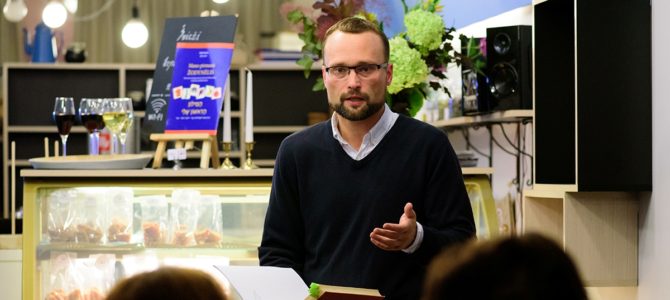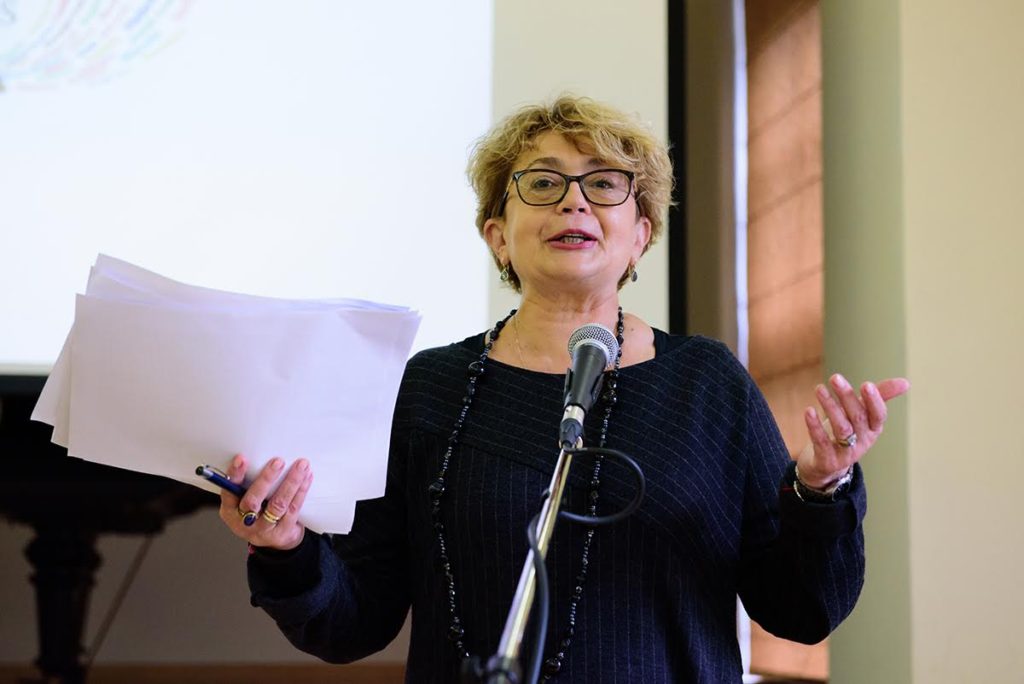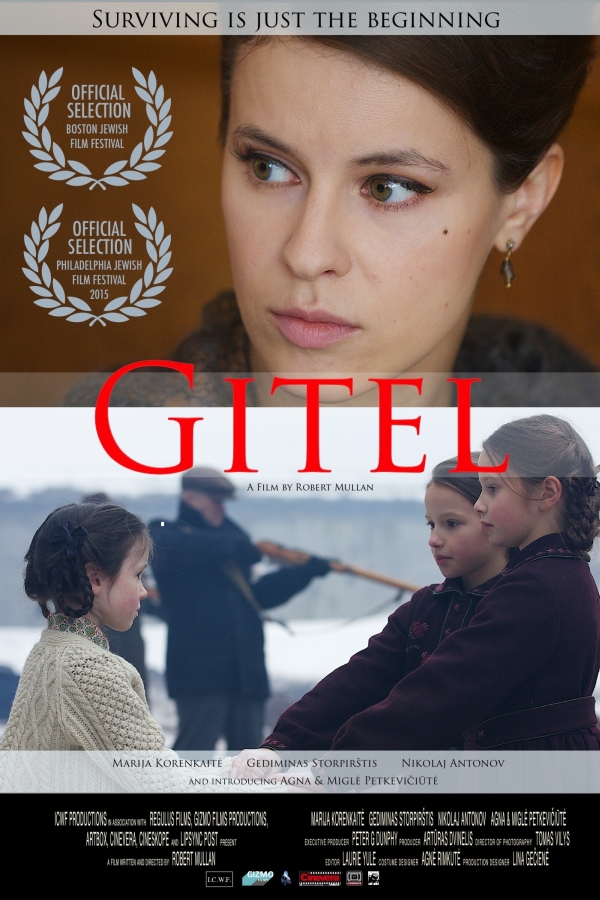September 20, 2016
Events to mark the Day of Remembrance of Jewish Victims of Genocide in Lithuania and to honor those who rescued Jews during the Holocaust begin this week, running from September 20 to September 28. It begins Tuesday with a volunteer group clean-up of the Jewish cemetery on Sudervės road in Vilnius. On September 21 a tour of Jewish Vilna will be offered, and a screening of the film “Gyvybės ir mirties duobė” [The Pit of Life and Death] will be held at 6 P.M. On September 22 the Israeli vocalist group Adam le Adam will hold a free concert at the square in front of the Old Town Hall in Vilnius at 6 P.M. A monument to commemorate the children who died in the Vilnius ghetto will be unveiled in the Garden of Brothers at the Vilnius Sholem Aleichem ORT Gymnasium. Then a ceremony will be held to commemorate Holocaust victims at the Ponar Memorial Complex outside Vilnius.
The conference “They Rescued Lithuania’s Jews, They Rescued Lithuania’s Honor” will be held at the Lithuanian parliament from 11:30 A.M. to 4:00 P.M. on September 25, followed by a presentation of the Lithuanian Jewish Community Jewish calendar for the year 5777. The events at parliament mark the 75th anniversary of the beginning of the Holocaust in Lithuania and the 150th anniversary of the birth of Lithuanian president and Righteous Gentile Kazys Grinius. A ceremony to present awards to rescuers of Jews is scheduled for September 28 at the Lithuanian President’s Office.
“This year this special emphasis on the small towns whose tragedy affected all people living in Lithuania. The mass murder of the Jews of the shtetls has revealed the full dimension of the tragedy,” Lithuanian Jewish Community chairwoman Faina Kukliansky said. “Lithuania is changing, a much braver younger generation is coming of age who take a different view of the history of their nation. The German press has called Lithuania the first state in Eastern Europe to openly raise the question of its own citizens’ complicity in the Holocaust. Lithuania is coming of age; we hope the country sets an example for neighboring states.
“As we remember every year the extremely painful losses we Jews have experienced, we advocate for analyses of the historical facts, what happened, what the Provisional Government of Lithuania did, how the Lithuanian Activist Front behaved. The Lithuanian Jewish Community is not an academic institution, but as much as we are able, with help from the state, without fanfare and sensationalism, we strive to make sense of the facts and circumstances in the Holocaust, and to educate the Lithuanian public on the history of the Jews of Lithuania. Again and again we dive deeper into Lithuanian history trying to understand why and how neighbor could turn on neighbor and murder their innocent, until then peaceful, well-educated and cultured good neighbors, including men, women, children and the elderly. Then stealing their property, and for decades denying they took part in the Holocaust. Forever and ever, but especially today, we remember our honorable fellow citizens, the Lithuanians who rescued Jews,” chairwoman Kukliansky said.
Events program here.
www.lzb.lt



